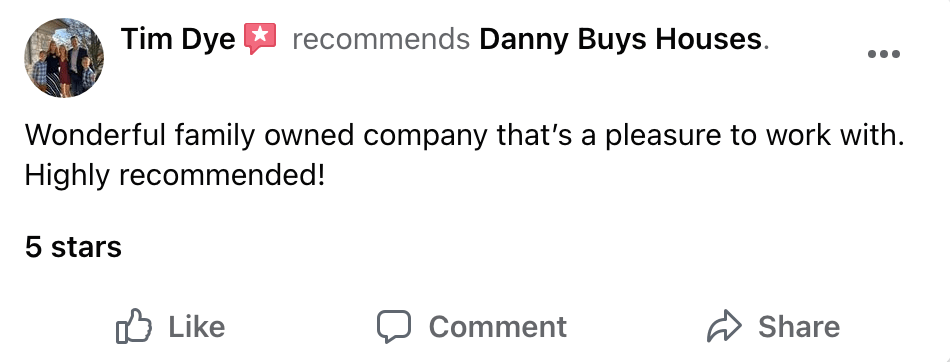
What Do Cash Home Buyers Do With Houses They Buy? Real Estate Investment Exit Strategies
By Danny Johnson | Updated 3/30/2025, 2:22:08 PM
Discover the exit strategies cash home buyers use for their real estate investments. Learn how they maximize profits and navigate the real estate market.
- Key Takeaways
- Traditional Selling and Wholesale Strategies
- Cash Sales vs. Financed Transactions
- Wholesale Property Flipping
- Marketing Properties to Different Buyer Types
- What Exit Strategies Do Residential Real Estate Investors Use
- Fix and Flip Strategy
- Buy and Hold for Rental Income
- BRRRR Method Implementation
- Creative Financing Exit Options
- Seller Financing Arrangements
- Lease Option Agreements
- Owner Financing Benefits and Risks
- Tax-Advantaged Exit Strategies
- Conclusion
🗂 Table of Contents
Imagine talking to a buddy who has decided to sell to a cash house buyer. You might wonder what happens next. As a seasoned real estate investor, I've seen how cash buyers turn these houses into valuable assets. It's like watching a caterpillar transform into a butterfly, but with houses! Ok...maybe that was weird.
Cash buyers are the magic makers in the real estate investing world. They quickly buy properties and then use their clever exit strategies. These strategies range from flipping houses fast to building rental empires that make money for years. The options are endless.
But it's not just about buying low and selling high. It's about knowing the market, managing risks, and sometimes getting creative with financing. Every decision, from mortgages to insurance, can affect your investment. Knowing when and how to exit is just as crucial as knowing when to enter.

So, get ready to explore the exciting world of real estate exit strategies. By the end of this article, you'll understand why cash buyers are like chess players in the property market. They always think several moves ahead.
Key Takeaways
- Exit strategies are crucial for maximizing profits in real estate investments
- Selling properties in a seller's market can lead to significant gains
- Refinancing and equity loans offer alternatives to selling for accessing property value
- 1031 exchanges provide tax deferral benefits when reinvesting in new properties
- Proper market timing and property improvements can substantially increase returns
- Diverse exit options like flipping, renting, or holding cater to different investment goals
- Economic indicators play a vital role in determining the best time to exit investments
Traditional Selling and Wholesale Strategies
Cash home buyers often use two popular strategies: traditional selling and wholesaling. Let's explore these methods and how they can benefit investors looking to maximize their profits in the real estate market.
Cash Sales vs. Financed Transactions
In traditional selling, buyers typically secure their own financing. This process can be slow and uncertain. That's why cash offers are highly valued. As they say, "cash is king" in real estate!
Cash sales often lead to faster closings and fewer complications. This makes them attractive to sellers looking for a quick and reliable transaction.
Wholesale Property Flipping
Wholesaling is a strategy where investors act as middlemen between motivated sellers and buyers. They purchase properties at discounted prices and quickly resell them for a profit. This method doesn't require much personal capital, making it an excellent option for new investors.
Wholesalers typically charge a fee for their services. This can be a lucrative business model in a hot real estate market.

Marketing Properties to Different Buyer Types
Successful real estate investors know how to market properties to various buyer types. Some focus on selling to landlords looking to expand their rental portfolio. Others target first-time homebuyers seeking affordable options.
Understanding buyer demand and tailoring your marketing approach can significantly impact your sales and profit margins.
Whether you're considering a leasehold estate, exploring seller financing options, or building a diverse real estate portfolio, it's crucial to understand these basic strategies. They form the foundation for more advanced exit strategies and can help you navigate the complex world of real estate investment with confidence.
What Exit Strategies Do Residential Real Estate Investors Use
Real estate investing is a great way to build wealth. Let's look at some top strategies that smart investors use. They aim to make the most money and manage risks well.
You can find out a lot of information about how a house was bought and sold or used as investment by checking public record.
Fix and Flip Strategy
The fix and flip method is like a house makeover. You buy a cheap house, fix it up, and sell it for more. This can make a lot of money, but you must watch your costs and time.
Finding houses with great potential is key. They should have good bones and the chance to increase in value.

Buy and Hold for Rental Income
Buy and hold is great for making money without much work. You buy a house and rent it out for a long time. This way, you build wealth and get regular income.
It's like planting a money tree! Look for areas with high demand for rentals and the chance for property value to go up.
BRRRR Method Implementation
The BRRRR method (Buy, Rehab, Rent, Refinance, Repeat) is a big deal. It mixes fix and flip with buy and hold. You buy a house, fix it, rent it, then refinance to get your money back.
This lets you use that money to buy another house. So, you can grow your investment portfolio fast.
Success in real estate investing depends on picking the right strategy. Think about your money, how much risk you can take, and how much you want to make. With the right plan, you can make houses into money makers!
Creative Financing Exit Options
Real estate investors look for new ways to make more money and reduce risk. Creative financing exit options provide unique chances to use finance wisely and increase revenue. Let's look at some strategies to help you get the most from your real estate investments.
Seller Financing Arrangements
Seller financing lets property owners lend money to buyers instead of banks. This is great when interest rates are high. For instance, in the late 1970s, mortgage rates hit 18%, making seller financing a good choice. It can bring in steady income and possibly more profit than selling for cash.
Lease Option Agreements
Lease options let tenants buy a property at a set price within a certain time. This strategy can attract more buyers. It's helpful when buyers struggle with down payments. For example, FHA loans need a 580 credit score for a 3.5% down payment, but lease options offer more flexibility.
Owner Financing Benefits and Risks
Owner financing, like seller financing, has many benefits. It can lead to quicker deals and attract more buyers. But, there are risks. There's a chance buyers might default, affecting your finances. To avoid this, work with a financial adviser to create deals that protect you while still appealing to buyers.
Creative financing is a strong tool in real estate. By knowing these options, you can make choices that fit your goals and the market. Always do your research and plan carefully for these strategies to work well.
For more on creative financing exit strategies, including for multifamily properties, see this comprehensive guide. It has great tips on refinancing, flipping, and long-term profit strategies.
Tax-Advantaged Exit Strategies
Smart real estate investors know that understanding tax-advantaged exit strategies is key to maximizing net income. These strategies can help you keep more of your hard-earned capital appreciation while minimizing financial risk.
The 1031 exchange is a popular strategy. It lets you defer capital gains taxes by swapping one investment property for another. You have 45 days to identify potential replacements and 180 days to complete the transaction. It's a powerful tool for growing your portfolio without immediate tax liability.
Investing in Opportunity Zones is another option. By holding investments in these designated areas for at least 10 years, you can enjoy tax-free appreciation. This strategy aligns your investment goals with community development in the United States.
Cost segregation is a lesser-known but effective method. It accelerates depreciation, reducing your taxable income during ownership. While this can lead to higher taxes upon sale due to depreciation recapture, it offers significant benefits in the short term.
For a steady earnings stream, consider installment sales. This approach spreads capital gains recognition over multiple years, potentially keeping you in a lower tax bracket. It's an excellent choice if you're looking to optimize your exit strategy while managing your tax burden.
Remember, each strategy has its pros and cons. It's crucial to consult with a lawyer or tax professional to ensure your chosen approach aligns with your investment strategy and financial goals. With the right planning, you can turn the complex world of real estate taxes into a powerful tool for wealth building.
Conclusion
As we finish our look at real estate exit strategies, it's clear that having many options is key. Each method, from selling to creative financing, has its own benefits and challenges. The right strategy can help you make more money, take less risk, and deal with market changes confidently.
Real estate investing is not just about buying properties. It's also about smart exits. Whether you're flipping for quick cash or building wealth over time, knowing your exit options is crucial. Remember, taxes can greatly affect your profits. For instance, single homeowners can exclude up to $250,000 in profits from capital gains tax when selling their primary residence. Married couples can exclude up to $500,000.
When planning your real estate projects, watch market liquidity and inflation trends. These can change your returns and guide your exit strategy. Diversify to spread risk across different property types, from homes to commercial spaces. Also, think about creative options like seller financing or lease agreements, which can lead to more profits.
Success in real estate investing depends on knowledge, flexibility, and planning. By learning various exit strategies, you'll be ready for anything the market brings. Here's to your continued success and growth in the exciting world of real estate!
Frequently Asked Questions
In this section we will answer the most common questions to different real estate investment exit strategies
What is an exit strategy in real estate investing?
An exit strategy in real estate investing refers to a planned approach for investors to liquidate their investment, ideally achieving their financial goals. It involves selling, refinancing, or otherwise converting the investment into cash or other assets.
What are some common exit strategies for real estate investors?
Common exit strategies for real estate investors include selling the property outright, refinancing the mortgage loan, engaging in a 1031 exchange to defer taxes, renting out the property for continuous income, and lease options where tenants have the choice to purchase.
How does a 1031 exchange work as an exit strategy?
A 1031 exchange allows investors to sell a property and reinvest the proceeds in a new like-kind property while deferring capital gains taxes. This helps maintain capital growth within real estate investments without immediate tax liabilities.
When might it be beneficial to refinance a mortgage as an exit strategy?
Refinancing can be beneficial when interest rates decrease or when there is significant equity built up in the property. It allows investors to lower monthly payments, extract cash for other investments or expenses, and potentially improve overall return on investment.
Why is understanding market conditions important when choosing an exit strategy?
Understanding market conditions is crucial because they influence property values and demand. Knowing whether its a buyers or sellers market helps determine if its optimal to sell quickly at higher prices or hold onto properties until conditions improve.

AUTHOR
Danny Johnson
Owner and Founder at Danny Buys Houses
Danny Johnson is an experienced real estate investor who has been buying houses for cash since 2003. As owner of Danny Buys Houses, Danny's goal is to help homeowners sell their house fast, regardless of the situation, so they can move on with their life.
Danny has been featured in publications such as Forbes, Realtor.com, BiggerPockets, Yahoo Finance, US News, and more. He is also the author of the book 'Flipping Houses Exposed'.




